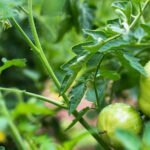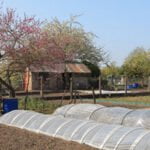Are you wondering if Preen is safe for vegetable gardens? Understanding the role of Preen in gardening is crucial when considering its usage in your vegetable garden. Preen is a popular weed preventer that can save time and effort in maintaining a healthy garden. However, it’s essential to weigh the potential risks and safety concerns before using it in your vegetable garden.
Preen is preen safe for vegetable gardens? This question often arises among gardeners who want to ensure the safety of their produce. In this article, we will explore the role of Preen in gardening and examine its safety for use in vegetable gardens.
We’ll delve into the potential risks, research on its safety, alternatives to using Preen, tips for safe usage, and case studies of vegetable gardens using Preen. By the end of this article, you’ll be equipped to make an informed decision about whether to use Preen in your vegetable garden.
The Potential Risks of Using Preen in Vegetable Gardens
Environmental Impact
One of the potential risks of using Preen in vegetable gardens is the impact it may have on the environment. When Preen is applied to the soil, there is a possibility that it can leach into water sources, such as rivers and streams, causing harm to aquatic life. Additionally, Preen can also have an adverse effect on beneficial insects, such as bees and butterflies, which are crucial for pollination in vegetable gardens.
Health Concerns
Another concern with using Preen in vegetable gardens is the potential health risks it poses to humans and pets. Some studies have suggested that certain chemicals found in Preen may be harmful if ingested or if they come into contact with the skin. This is particularly concerning for vegetable gardens, as consuming produce grown in soil treated with Preen may pose a health risk.
Soil Contamination
Using Preen in vegetable gardens also raises concerns about soil contamination. While Preen is designed to prevent weed growth, it may also affect the natural balance of microorganisms in the soil. This could potentially hinder the growth of vegetables and other plants, leading to long-term damage to the garden’s ecosystem.
Research on the Safety of Preen for Vegetable Gardens
When it comes to using Preen in vegetable gardens, there has been some debate about its safety and potential impact on the plants and soil. Many gardeners wonder if Preen is safe for use in their vegetable gardens and if it could potentially harm their crops. Research on the safety of Preen for vegetable gardens has provided some insight into these concerns.
Studies have shown that the active ingredient in Preen, trifluralin, can be harmful to certain vegetable plants if not used properly. Trifluralin is a pre-emergent herbicide that works by inhibiting weed seed germination, but it can also affect the growth of desirable plants if applied incorrectly. Research has indicated that certain vegetables, such as carrots and lettuce, are particularly sensitive to trifluralin and may suffer from stunted growth or even die if exposed to high levels of the herbicide.
In addition to potential harm to vegetable plants, research has also raised concerns about the impact of Preen on soil health. Some studies have suggested that repeated use of Preen in vegetable gardens can result in a buildup of trifluralin in the soil, which may negatively affect beneficial microorganisms and earthworms. This could disrupt the balance of the soil ecosystem and ultimately impact the overall health of the garden.
- Always read and follow the label instructions carefully when using Preen in your vegetable garden
- Consider using alternative weed control methods such as mulching or hand-weeding
- If you choose to use Preen, consider using it sparingly and only as needed
While further research is needed to fully understand the long-term effects of using Preen in vegetable gardens, it is important for gardeners to weigh the potential risks before making a decision about its use.
- Regularly monitor your vegetable garden for any signs of plant stress or soil degradation
- Be mindful of any changes in plant growth or behavior after applying Preen
- Consider conducting your own small-scale trials with Preen before widespread application in your vegetable garden
Ultimately, staying informed about current research findings on the safety of Preen for vegetable gardens is crucial for making responsible decisions as a gardener.
Alternatives to Using Preen in Vegetable Gardens
When it comes to maintaining a healthy vegetable garden, many gardeners are concerned about the use of chemicals and pesticides. Preen is a popular weed control product that is effective in preventing the growth of unwanted plants in gardens. However, for those who are looking for alternative options to using Preen in their vegetable gardens, there are several effective methods that can help keep weeds at bay without the potential risks associated with chemical products.
Here are some alternatives to using Preen in vegetable gardens:
- Manual Weeding: One of the most traditional and effective methods of weed control is manual weeding. Simply pulling out weeds by hand or using handheld tools can be a labor-intensive but environmentally friendly way to keep your vegetable garden free from unwanted plants.
- Mulching: Applying a layer of mulch around the base of your vegetable plants can help suppress weed growth by blocking sunlight and reducing moisture in the soil. Organic mulches such as straw, wood chips, or compost can also enrich the soil as they break down over time.
- Crop Rotation: Implementing a crop rotation strategy in your vegetable garden can help disrupt the life cycles of weeds and prevent them from becoming established. By rotating different types of vegetables each season, you can effectively manage weed populations without the use of chemical products.
These alternatives provide safe and sustainable ways to control weeds in vegetable gardens without relying on chemical solutions like Preen. By incorporating these methods into your gardening routine, you can maintain a thriving vegetable garden while minimizing any potential risks associated with chemical weed control products.
Tips for Safely Using Preen in Vegetable Gardens
Use With Caution
When using Preen in vegetable gardens, it is important to exercise caution. Always follow the instructions on the product label and never exceed the recommended application rate. Overuse of Preen can have detrimental effects on the health of your plants and soil. It is also important to keep children and pets away from treated areas until the product has been properly incorporated into the soil.
Apply at the Right Time
To ensure the safety of using Preen in your vegetable garden, apply it at the right time. It is best to apply Preen after planting your vegetables and once they have become established. This will prevent any adverse effects on germination and early plant growth. Avoid applying Preen during windy conditions to prevent unintentional spreading onto unintended areas.
Consider Organic Alternatives
If you are concerned about the safety of using synthetic chemicals like Preen in your vegetable garden, consider using organic alternatives instead. There are many natural weed control methods that can be just as effective without posing potential risks to your vegetables or soil. Mulching, hand weeding, and using vinegar-based herbicides are all viable options for keeping weeds at bay in your vegetable garden without resorting to chemical treatments.
Case Studies of Vegetable Gardens Using Preen
Several case studies have been conducted to evaluate the use of Preen in vegetable gardens. One study found that when used according to the label instructions, Preen did not cause any harm to the vegetables or soil in the garden. The study monitored the growth of various vegetables, including tomatoes, peppers, and lettuce, and found no negative effects on yield or quality.
Another case study focused on the impact of Preen on soil health in vegetable gardens. The researchers analyzed soil samples from several vegetable gardens both before and after the application of Preen. They found that there were no significant changes in the soil’s nutrient levels or microbial activity after using Preen, indicating that it does not have a detrimental effect on soil health.
Additionally, a long-term case study followed a group of vegetable gardeners who used Preen as a weed preventer over several growing seasons. The results showed that these gardeners were able to maintain weed-free gardens without experiencing any negative impacts on their vegetable crops. The case study also revealed that the vegetative growth and overall health of the plants were not compromised by the use of Preen.
| Case Study | Findings |
|---|---|
| Study 1: Impact on Vegetable Growth | No negative effects on yield or quality of vegetables |
| Study 2: Effect on Soil Health | No significant changes in soil nutrient levels or microbial activity |
| Study 3: Long-term Use | Maintained weed-free gardens without compromising plant growth and health |
Conclusion
In conclusion, it is essential for gardeners to make an informed decision about whether to use Preen in their vegetable gardens. While Preen can be effective in preventing weed growth and reducing the maintenance required for a vegetable garden, there are potential risks associated with its use. Research on the safety of Preen for vegetable gardens is ongoing, and there is still much to learn about its long-term effects on soil health and plant growth.
As an alternative to using Preen in vegetable gardens, gardeners can consider implementing organic weed control methods such as mulching, hand-weeding, or using natural herbicides. These methods may require more effort and time, but they eliminate the concerns about chemical residues in the soil and potential harm to plants. Additionally, using these alternative methods aligns with sustainable gardening practices that promote environmental and human health.
Ultimately, the decision to use Preen in a vegetable garden should be based on careful consideration of its potential benefits and risks. Gardeners should take into account their gardening goals, environmental values, and available resources when deciding whether or not to incorporate Preen into their gardening routines.
It is crucial to stay informed about new research findings regarding the safety of Preen for vegetable gardens and to continuously reassess gardening practices accordingly. By doing so, gardeners can ensure that they are making choices that align with their values while promoting the health of their vegetable gardens.
Frequently Asked Questions
Is It Safe to Use Preen in Vegetable Gardens?
Using Preen in vegetable gardens is a controversial topic. While Preen is labeled for use in vegetable gardens, some gardeners are concerned about the chemicals potentially affecting their plants and soil.
Is Preen Safe for Tomato Plants?
The safety of using Preen on tomato plants is a subject of debate among gardeners. Some believe it can be used safely, while others worry about the impact of the chemicals on the tomatoes and the environment.
Can You Put Pre-Emergent in Vegetable Garden?
It is possible to use pre-emergent in a vegetable garden, but caution should be exercised. Some pre-emergent herbicides may have residual effects that could harm vegetables, so it’s important to carefully follow product instructions and consider alternative weed control methods.

If you’re looking to get into vegetable gardening, or are just looking for some tips on how to make your current garden better, then you’ve come to the right place! My name is Ethel and I have been gardening for years. In this blog, I’m going to share with you some of my best tips on how to create a successful vegetable garden.





